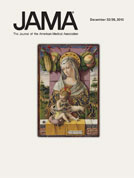 The authors of a 2010 Journal of Immunology paper have retracted it, saying that part of one of the figures was actually a placeholder from another experiment.
The authors of a 2010 Journal of Immunology paper have retracted it, saying that part of one of the figures was actually a placeholder from another experiment.
According to the retraction notice for “Stimulation of FcgRI on Primary Sensory Neurons Increases Insulin-Like Growth Factor-I Production, Thereby Reducing Reperfusion-Induced Renal Injury in Mice” by Naoaki Harada, Juan Zhao, Hiroki Kurihara, Naomi Nakagata, and Kenji Okajima: Continue reading Group under investigation retracts second paper, claims errant figure was just a placeholder





